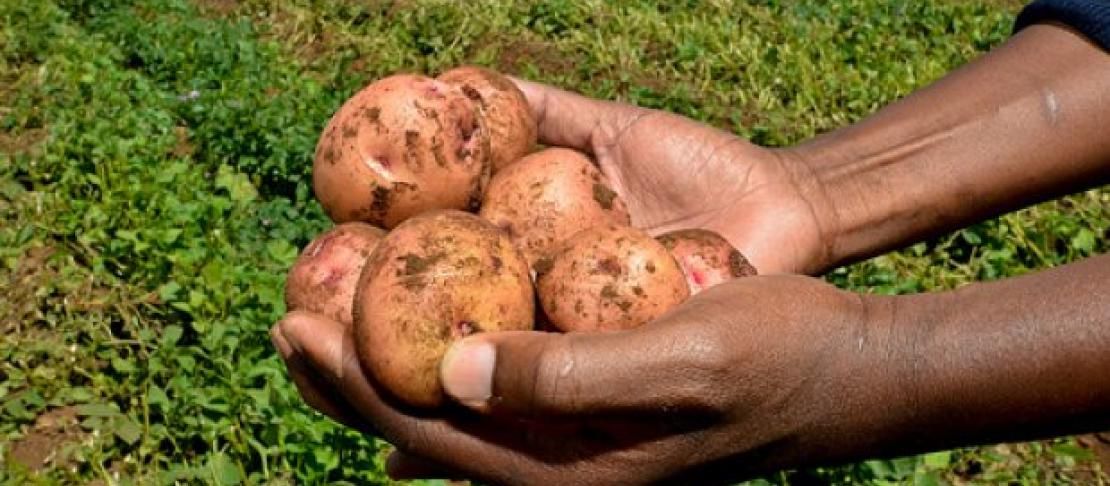A look at food losses in Uganda and insights on the FAO Save Food Programme

by Denise Martínez Breto
No other accounts on the reality of growing crops, harvesting and selling food could ever be as genuine as those coming from the farmers themselves. In a two-hour dedicated Learning event on food losses and waste during the Agriculture and Rural Development Day farmers from Uganda, FAO members and private sector organizations zoomed in on food thrown out or squandered in both developed and developing countries.
One-third of the food produced in the world for human consumption is either lost or thrown away, together with the natural resources used for its production. Although food losses occur at all stages of the food supply chain the causes and their impact around the world differ. In developing countries, food losses hit small farmers the hardest. Almost 65 percent of these food losses happen at the production, post harvest, and processing stages. In industrialized countries, food waste often occurs at the retail and consumer level due to a “throw-away” mindset.
Rose Akaki, from the Ugandan Farmers Federation and member of World Farmers Organisation gave a picture of what post harvest losses in Uganda looks like and stressed the need to truly tackle this issue if the goal is to achieve food security. Citing numbers gathered by the Ugandan Farmers Federation, Akaki mentioned how when markets aren’t properly organized the losses in mangoes, oranges and pawpawa crops could reach up to 80 percent of total production. Farmers in Uganda are already addressing this situation by building local storage facilities and proposed to introduce warehouse receipt systems. You can view Rose Akaki’s complete presentation here.
New technologies, better practices and coordination, and investments in infrastructure – from food production to consumption - are critical to reducing food losses. Similarly, raising awareness on the impact of food waste is important in changing the “throw-away” mindset and setting policy standards.
Alexandre Meybeck from FAO gave the global facts of food lost or wasted in the world and talked about partnerships that can provide ways to address this issue.
He presented FAO’s recently launched SAVE FOOD global initiative which aims to cut down on food losses and waste to help improve livelihoods and food security for over 900 million hungry people in the world.
With the support of over 50 companies to date, field studies in developing regions are underway to find the best ways to prevent and reduce food losses in food supply chains. In parallel, studies are also being organized to identify and measure the impact of food losses and waste and the effects on food prices worldwide. This will support the design and implementation of cost-effective and sustainable solutions specific to the area. View Alexandre Meybeck’s presentation here.
Ways to improve resource use efficiency and sustainability was touched upon by Hsin Huang from the International Meat Secretariat who illustrated how every single section of cows and pigs have a purpose and placement in international markets. By improving production systems, the pressure on natural resources would be reduced. According to Hsin Huang, in efficient production systems nothing is wasted and there are huge opportunities to create business value from farm to fork.
The audience engaged in a lively discussion moderated by Loretta Dormal-Marino Deputy Director General for Agriculture and Rural Development from the European Commission who chaired the event making reference to the role of States in educating consumers. Other issues raised included the definition of food waste and the need to assist farmers in becoming even more professional through new technologies and better practices to efficiently avoid waste and increase their incomes to better their livelihoods.
View a summary of key messages from this event
Denise Martínez Breto is a Communications Officer at the United Nations Food and Agriculture Organisation (FAO).